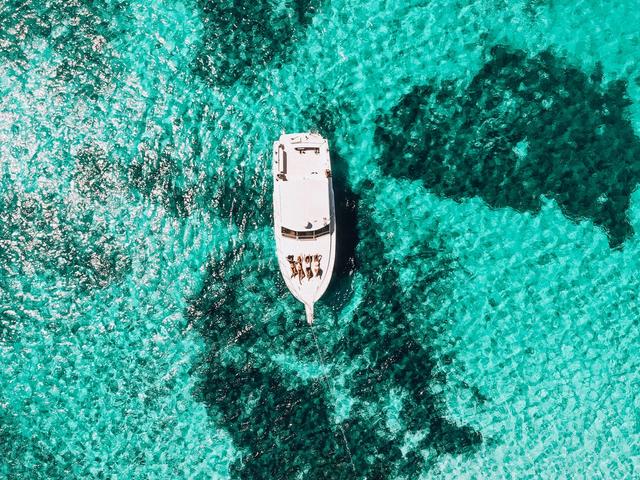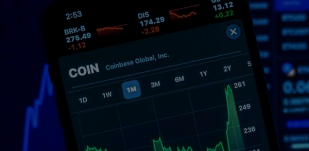
How to Buy or Sell Luxury Products Abroad and Move Currency Overseas
Gary O’Driscoll
Chief Operating Officer
Is history repeating itself? The 1920s - or the 'Roaring Twenties' as they were affectionately known - was a decade of accelerated consumer demand and significant new lifestyle and culture trends, following years of trauma caused by World War One and the 1918 flu epidemic. Fast-forward 100 years, are we emerging from the worst public health crisis in modern history into the second incarnation of the ‘Roaring Twenties’, with money being splashed by those who can afford it?
After being ordered to stay at home for weeks on end in a bid to prevent the spread of Covid-19, post-lockdown freedom could provide the luxury goods market - which was booming pre-pandemic - with a shot in the arm as pent-up demand is finally released.
The luxury sector appeals to global buyers: 20 to 30 per cent of industry revenues are generated by consumers purchasing luxury goods outside their home countries. For example, on a domestic level, yacht and sports car demand surged last year in the UK after exotic holiday plans were jettisoned amid the pandemic - but wealthy buyers couldn't access desirable international markets. Now that lockdowns are over and borders have reopened, they can begin flexing their financial muscle overseas again - and enjoy the 2020s in style.
Whether you’re buying a yacht in the Med, a supercar in Monaco, a watch in Switzerland, art in Paris, antiques in Antibes, or jewellery in Dubai, there’s much to organise before you can take possession of your high-end purchase - from tax to currency exchange. Equally, if you’re selling a luxury good - no matter how big or small - to an overseas buyer, you will have similar considerations to plan for to make it a success.
Need to pay in another currency?
Do your research

The more you intend to spend on a product, the more time you should take to research what you are buying, where you are buying it from and how to get it home. For example, if you’re travelling overseas on an antiques buying trip, you should thoroughly research the destination and date of travel to guarantee you’re viewing the best selection of antiques; or, if you’re buying a yacht from another country, consider all the additional costs: viewing trip, import duties, local taxes, delivery costs - it soon mounts up!
Tax
According to Her Majesty's Revenue and Customs (HMRC): “Anything posted or couriered to you from another country goes through customs to check it is not banned or restricted and you pay the right tax and ‘duty’ on it. This includes anything new or used that you buy online, buy abroad and send back to the UK, or receive as a gift.”
Before receiving your goods, you may have to pay VAT, Customs Duty or Excise Duty:
- VAT: Value added tax (VAT) is charged on all goods sent from outside the UK to Great Britain. You must pay VAT when you buy the goods or to the delivery company. VAT is charged at the rate that applies to your goods: the standard rate of VAT increased to 20% on 4 January 2011 (from 17.5%).
- Customs Duty: You will be charged Customs Duty on all goods sent from outside the UK, which you’ll need to pay on both the price paid for the goods and the postage, packaging and insurance.
- Excise Duty: If you buy alcohol from outside the UK - such as a selection of luxury wine from Italy or France - you will be charged Excise Duty at current rates.
Failure to follow all relevant customs and border regulations could result in hefty fines.
Customs Duty and import VAT on goods are repayable if you believe you’ve been overcharged on delivery for an item, in which case you can apply to reclaim the money. Seeking a refund on the VAT and import charges paid may be difficult though.
Shipping
If you purchase a yacht overseas, the shipping is already taken care of - literally! But how do you make sure your other luxury purchases make it safely into your possession from another country?
Fine art and antiques

Perhaps the most fragile luxury items you can own, art and antiques require a delicate touch when being shipped overseas. Therefore, you should seek the services of a specialist fine art/antiques shipping company; one that understands the value of your items and how they should be handled from the packing stage to delivery - specialist knowledge and experience that a standard courier company typically lacks.
Jewellery
Perhaps you’re sending jewellery overseas as a gift, selling it to an overseas buyer or you’re receiving it from an inheritance. Whatever your requirement, there’s much to consider when sending or receiving jewellery internationally.
The regulations for shipping jewellery overseas depends on the materials the item is made of and if it is considered a valuable/luxury item. Valuable jewellery is prohibited to ship if it contains special metals and stones. Some countries restrict the shipping of jewellery over a determinate price point. So, check the specific regulations before booking a service to ship jewellery in the mail.
Not all courier companies will ship jewellery abroad. For example, DHL, TNT and UPS don’t ship valuable/luxury jewellery internationally. Each courier has specific rules and requirements for different shipments and services, so take the time to research couriers for your route.
Cars

If you buy a classic, super or sports car in Europe you can easily drive it back to the UK via a ferry or the Eurostar. But what if you don’t have the time or you buy a car from further afield? There are two other options available to you: shipping your luxury car inside a 20 or 40-foot container via sea or air, or sending it separately on a dedicated vehicle transporter vessel. Your next decision is whether to choose terminal to terminal or door to door vehicle shipping - the latter being the more expensive option yet more convenient.
Insurance
From smashing your Rolex to pranging your Ferrari, insuring your high-value possessions, vehicle or boat is a no brainer. Take the time to purchase specific cover that guarantees sufficient compensation for specified loss, theft or damage.
Household items
Smaller luxury items like watches, jewellery, art and antiques won't be covered as standard by your home insurance if the item is worth more than the single article limit - typically around £1,000. For example, a specific jewellery and valuables insurance policy will likely cover you for: accidental loss, theft, accidental damage, loss of diamonds and stones, and away from home cover.
Cars
Imported cars can be more expensive to insure because insurance companies find it harder to assess how much of a risk they pose. They typically fall into three categories: grey imports, parallel imports and personal imports:
- Grey-imports are vehicles that come from outside the EU and include certain high-spec Japanese and American cars. You may have to make some changes to your new vehicle to ensure it meets UK safety standards before you can drive it, such as adjustments to the headlights. Consequently, these vehicles usually require special insurance cover.
- Parallel imports are cars from EU countries. They don’t typically cost much more to insure than a similar model bought in the UK as they already meet UK safety standards.
- Personal imports refer to a vehicle you’ve imported yourself, rather than one obtained through a dealer. You must inform HMRC of the vehicle within 14 days of it arriving in the UK.
Here are a few tips to help you reduce your imported car’s insurance:
- Overnight parking: Being extra vigilant with overnight parking lowers the insurance provider’s risk, and may lower your premiums as a result.
- Choose a car with fewer after-market modifications: Even minor modifications can drive up the cost of your insurance.
- Consider paying a higher voluntary excess: This is the amount you volunteer to pay in the event of an accident: the higher your voluntary excess, the lower your insurance quote will be.
Yacht

Buying an insurance policy for your yacht, such as hull protection and indemnity insurance, should be top of your to-do list once your purchase is complete. A common misconception is that your insurance policy will be a simple, all-encompassing document that can be purchased and forgotten about until it's needed. In reality, insuring your yacht is a multi-faceted consideration, and the insurance policy is a contract that begins an active, ongoing relationship with your insurance provider.
All too often insurance policies are purchased based on price using the advice of someone who does understand the specialised world of yacht insurance. It requires expert knowledge, experience and contacts to properly service an oceangoing superyacht, something a general personal or business insurance broker is not best positioned to do.
Currency exchange
Purchasing luxury items from overseas exposes a large sum of money to currency market risk – especially when the final payment isn’t required for weeks or even months.
Currencies are traded around the clock, 24 hours a day. Therefore, the value of the pound against other currencies is constantly changing - not just daily but by the minute. Even slight fluctuations in the rate of exchange can make a big difference to the cost of your luxury purchase.
For example, the dynamic nature of exchange rates means agreeing to buy a luxury item such as a yacht at one price and paying for it weeks or months later involves a degree of risk. Between putting in an offer and actually paying, the price will be fixed in the currency of the country you are buying in - euros, dollars etc. - but constantly fluctuating in pounds.
The impact of the political and economic variables that influence exchange rates can be extremely severe - as has been proved in recent times. Take Brexit and the Covid-19 pandemic for example:
- Brexit: On 23 June 2016, the UK voted to leave the EU - a decision that took markets by surprise. Last-minute polling suggested that ‘remain’ had the edge, so when the Brexit result reverberated around the world the pound fell off a cliff, experiencing its largest intraday collapse in 30 years.
- Covid-19 pandemic: Back in March 2020, when the true extent of the Covid-19 pandemic became clear, the pound sunk to its lowest level against the dollar since 1985 and its lowest level against the euro since the depth of the financial crisis 11 years earlier.
A currency company that specialises in high-value transactions, such as luxury goods bought in another country, can work in partnership with you to mitigate the impact of currency risk on the cost of your purchase; risks that aren’t limited to buying luxury goods overseas. The process of selling your luxury product to an overseas buyer and transferring the funds back home also exposes your finances to the unpredictable world of exchange rates, potentially resulting in less money than you anticipated arriving back in your account.
Clear Currency
Clear Currency specialises in helping clients that are buying or selling luxury products overseas to save money when making international payments.
Exchanging large sums of money into another currency and transferring them overseas can be daunting and confusing. Aware of this, we use our knowledge and experience to cut through the jargon and give you a friendly and personal service.
We recognise that it’s impossible to accurately predict how exchange rates will perform; therefore, it’s prudent to plan for all eventualities. With this in mind, we will assign you a dedicated account manager. In addition to helping you benefit from quick, easy, reliable and secure transfers, they can help you mitigate the impact of currency risk on the cost of your purchase.
Your account manager will work in partnership with you throughout the buying process. For example, before you make an offer on a yacht or car, they can prevent currency risk from causing the cost of your purchase to disappear out of reach. Because fluctuating exchange rates make it hard to judge how much you’ll pay at any one time, your account manager can help you execute a forward contract to secure the cost of your purchase. This allows you to lock in an exchange rate for a date in the future, securing the price of your purchase when the time comes to pay.
Fast, simple, secure payments
Related Articles
How to Mitigate Foreign Exchange Risk
Currency risk can have a significant effect on the efficiency and profitability of any international business. Each exchange rate movement affects how much you receive from sales and what you pay to suppliers.
Read more
Moving to Dubai from the UK: Checklist
You’re ready for a new life overseas and have decided you’re moving to Dubai. Now it’s time to consider the various costs involved, from your visa and accommodation, to health insurance, shipping your belongings and bringing your beloved pets along too.
Read more
Currency Outlook Quarter 1 2023
Clear Currency looks back at the performance of the US dollar, euro and sterling in Q4 2022, and assesses what might be in store for Q1 2023.
Read more



